A mom of 8 with limited resources on advocating for her son with ADHD

Stay in the know
All our latest podcasts delivered right to your inbox.
Melissa is a single mom from Philadelphia who faced many challenges while raising her son Abdullah, who has ADHD and learning differences. A second-generation Puerto Rican and a high school graduate, Melissa faced stigma, limited resources, and a knowledge barrier. But she dedicated herself to making sure her son could learn and self-advocate — all while juggling seven other kids.
This week, Julian Saavedra and Marissa Wallace welcome Melissa, who they’ve been friends with ever since they taught her son. Listen in to hear how this mom beat the odds by being her son’s best advocate. Hear the advice she has for parents like herself. And find out what Abdullah is up to now.
Related resources
How to find more support when you have kids who learn and think differently
Perspectives: How to make sure families of color are heard by the school
Episode transcript
Julian: From the Understood Podcast Network, this is "The Opportunity Gap," a podcast for families of kids of color who learn and think differently. We explore issues of privilege, race, and identity. And our goal is to help you advocate for your child. I'm Julian Saavedra.
Marissa: And I'm Marissa Wallace. Julian and I worked together for years as teachers in a public charter school in Philadelphia, where we saw opportunity gaps firsthand.
Julian: And we're both parents of kids of color. So this is personal to us.
Marissa: Hello and welcome, everyone. It is so wonderful to be here tonight because this evening we have the honor and the privilege to introduce and welcome to the show one of our very dear old friends from our previous lives back at good old KIPP West Charter School is where Julian and I first met and where we met this amazing parent, Melissa, thank you so much for being here.
Melissa is one of a kind. She is a true family member. And we wanted to take some time to talk with her specifically, because not only is she a great parent to eight — get that, eight — amazing kids, but she also is someone who was super supportive within our school. And she was able to really help us to grow as educators when we got to work and have the privilege to work with her son Abdullah. We know he has accomplished so many great things as an adult and throughout that educational experience. He does have a lending and thinking difference, and we really were able to learn from him and from you, Melissa. So thank you so much. We're just so excited for you to be here. So welcome. Welcome to our podcast.
Melissa: Thank you so much for having me. It's my pleasure and honor to be here.
Julian: Thank you so much for joining us. Like Marissa said, it's just exciting when we get to talk about somebody that we know very intimately, somebody that we know on both sides of the equation with the student side and the parent's side. And it's just an honor for us to elevate somebody like yourself. So that being said, tell us about yourself. Tell us a little bit about who you are and what brings you on our show.
Melissa: I'm a single mom of eight kids. I'm a high school graduate. And right now, I am living an amazing career as an office production studio manager and an artist. I'm Puerto Rican, second generation over here. And my children also are second generation West Indian. Their father's from Barbados and international because we just like love everyone's culture. So we just adapted to that and brought that into our own. And I raised my children in an Orthodox Islamic way.
Julian: Let's speak specifically about your children. As we said earlier, both Marissa and I were fortunate enough to teach multiple members of your family. But the first one that we taught was Abdullah. We know specifically Abdullah has ADHD. And I remember, as his social studies teacher, how inquisitive he was and how confident he was in his ability.
And you know, somebody who had come to the table with learning and thinking differences, but also were confident. In his case, he had a quiet confidence about, and I remember how much it impacted my own teaching because it made me want to bring my A game every day. And it made me want to make sure that I was producing like high-quality lessons and making sure that what I was putting in front of him was going to be worthy of his intelligence. So that's what I saw, right? And this is going back years and years and years, but I'd love for you to tell our listeners just more about him. Tell us more about Abdullah.
Melissa: Abdullah made me who I was as a mother and a parent. I was really challenged to defy all stigmas that were placed on me as being a young, Hispanic mother with a kid who didn't go to college or having a kid with physical delays, and then later having learning differences, he really just challenged me every day, like, to just be my best. Put everything aside that was like placed on me and really just to like learn, pick up a book and ask questions.
He was very quiet about it. So the best word to describe him would be very stoic. And that is really who he is. He's always known that things are just different for him. Like he sees things differently. He holds things differently. He couldn't button his pants like his friends, or he couldn't run down the street like his friends, or ride the bike as quickly, but he always challenged himself. He never was like, I can't do this.
Marissa: And that's such a beautiful picture of Abdullah. And as we are continuing to talk about Abdullah, tell me more about like, when and how you noticed, or how did you determine that he had learning and thinking differences?
Melissa: So when Abdullah was 3 days, 3 days old, they told me that he had a hole in his heart. So at 7 days old, he had to have open-heart surgery. So at that point, I always just kept like an extra eye on him, his development, how he was sleeping, how he was breathing, what he was eating, how he was moving.
So when he was 6 months and he wasn't sitting — up a 6-month-old baby should be sitting up or really trying to sit up. I had just had a conversation with his pediatrician. And so that was like really vital for me, for him to have a pediatrician that I was like, heard my concerns and listened. So at that moment, they made the reference to had him evaluated. And we did find out that at that moment, he did have some physical disabilities and differences that made it hard for him to sit up. And we then provided physical therapy for him at that moment.
Marissa: And that's so important. That is something we've talked about on this show before too, is just the importance of that early intervention. And you being so observant and so aware definitely helped throughout the process for the acceptance for you as the family, and then Abdullah as he was navigating school. You know, after you got the information and kind of sifted through it yourself, how did you then tell Abdullah about his learning and thinking differences? How did you explain to him what was going on?
Melissa: I don't think it was really until his older adolescent years, probably even like his middle school years when he came to KIPP and I invited him to his first IEP meeting. I had the conversation with him about how he learns and speaking up about what he needs and what these meetings were about and that he had a voice in his education. And that's why he was there, so that he could know one day that he had to advocate for himself and take over for his own education, along with the support of his family and like the staff at the school.
Marissa: Thank you for sharing about Abdullah and for sharing about just that experience of you acknowledging and understanding his learning and thinking differences, and then sharing that with him. And him being part of those meetings was such a crucial part for sure, in his experience. What was the response then from his siblings and from the rest of the family? How did they navigate that as well?
Melissa: I know the conversation was always present with them before it was present with Abdullah. You don't know like the right words and you don't know what to say to your child that has like a learning difference. I was always afraid to say something that would discourage him. So I would just always give him like encouraging words. But when it came to his family, it was like they missed out on a lot of weekends. They sat at home when I had to drive an hour away to get Abdullah to therapy or to get what he needed.
So we had to talk to them about that, about what he needed. They felt like what they were getting, like the short end of the stick, he was getting a chance to go to his cool therapy places that have cool gadgets. And they were bright and colorful when he got to do all these fun things and they got to sit home.
So we had the conversation about that, that he really needed that support. And then we also had to have the conversation as well when it came to playing, because sometimes they would think that he was trying to get away with things or not doing something, or he couldn't play the game as well as the other kids 'cause his comprehension wasn't there on understanding a game. So that was one we maybe had to make some modifications to the game or do you know, just talk to the kids about just having some understanding and compassion for him.
Julian: That's really positive that that's the experience he had within his own family in the Black and brown community. There is sometimes a stigma around the idea of learning and thinking differences and receiving special education services. So you and I come from very similar timeframe of when we were in school and the experiences we had in our own school experience. What was the experience for you all when it came to some of those stigmas coming up and how did y'all deal with?
Melissa: So for me, growing up, the first experience that I had, that was a huge — just a teacher for me, right? — was my own oldest brother. He was labeled a learning disability, was placed in like the basement class. So I saw how the school system treated him. And I also saw how successful he was when he graduated from high school.
And I didn't want that for my kid. I was like, I didn't want him to be placed in the basement or to just hurry up and be passed through school, just to get a diploma. And just to say that the school district did their thing. I wanted my son to get an education. I believed that he could go to college and I believed that he had the right to learning just like every other person in this world, no matter which way we learn.
Julian: Gotcha. So did you experience any pushback to that?
Melissa: The major challenge and pushback was not understanding the language, right? Feeling like I was this uneducated person with the high school diploma, from the Badlands that didn't know how to navigate an IEP. And I made it known that I knew what these things were, but there was still some things about the lingo that I didn't understand.
So that's where I felt the problem came in. Not fully knowing all of my rights that were there and weren't exercised. And not to put any teacher at fault, but you guys are just doing your job. And if the parents don't ask and we don't raise our concerns, how are you to know that those are our concerns and really bring it up when you are placed with 30 students to one teacher and the ratio is just really off there to begin with.
Marissa: I know we have talked before and I know Abdullah had started education homeschooling. So that was also probably part of your story and part of Abdullah's story is then going from that homeschooling environment to making the transition to the charter school. And so I'm curious, and you just unpacked and shared a lot about kind of your learning curve and the things that you learned about the process and about the, so what led you to make the decision to have him come into the charter school? And how do you feel that he adjusted to that decision?
Melissa: OK. So there was a moment where we were homeschooling and I could not get Abdullah past the third-grade math curriculum. I did not know what to do. Like I was just not equipped and I needed help. And there were days where Abdullah got everything he needed. He got caught up on his work. And then my three daughters just sat there, like looking and playing with their LEGOs and their dolls. And it's probably why they're engineers now. 'Cause they had like all this free time to play, but like LEGOs, they didn't get what they needed. And then the other day. They got what they needed and Abdullah didn't what he needed.
And he needed continuous support every day, like extended year-round learning and not just like the normal learning, like in a classroom. Just learning every way we want. And it was just really frustrating. And I started to feel like a failure as a parent. And, um, I started to hate homeschooling. And I didn't want it to be like that. I didn't want, I didn't, I didn't like that feeling. So I sought out the best help that I could. I did my research on the internet. I asked around to some families to ask what they were doing.
Marissa: Do you feel, or, you know, I know it was many, many years ago, but how do you feel that Abdullah adjusted to, to KIPP, in to that environment?
Melissa: So it was just like, they all around family support and he went to school with his sister. So that really mattered. And me being able to come to the school and sit in the back of the classroom if I needed to, or just volunteer and show my face in the hallway, that really allowed him to adjust. And he didn't feel different because of his skin color. And he wasn't teased because of his learning difference.
Julian: Did you go through an evaluation process to get Abdullah special education services?
Melissa: It was exciting. It was scary, and I'm glad I did it. It was like the roadmap to life for me for three years. So it was one of the best things that I did, and I was able to be there and be like an interactive part of his education and his IEP.
Like they taught me what they were teaching him in school. They showed me the things so that I was able to do these things at home with him and not just play with him, bring learning into play and everything around us. So it was really cool part, but it was scary. Then, like I spoke to before, I didn't know how to ask the right questions.
Julian: How did you go about just getting the information, like even during this evaluation process or as you went further along with Abdullah, how did you go about educating yourself?
Melissa: Sharing my concerns with other parents around me and asking the pediatrician questions. Asking his physical therapist, his occupational therapist, and his speech therapist questions and a psychologist, and really telling them what my vision was for my kid.
Like I described who I saw Abdullah being when he was a grown man, when I wasn't here for him and who I wanted him to be and who he needed to be for himself when no one was there. And they recommended books to me, and it taught us about differences on what side of the brains we use to learn and do things. So really like reading and just asking questions from all of people that were there at my disposal, in my home for like an hour two days a week.
Julian: And I mean, that's parenting, right? All of us are parents on this call and we all are in this mode where we're constantly educating ourselves about how to be the best parents we can be. So I love that you said you did a lot of reading. Thinking about that and helping Abdullah navigate his school experience, what are some of the learning strategies that you saw really worked for him? We know specifically, Abdullah has ADHD. What are some things that really worked for him?
Melissa: I have learned through many rounds of trial and error and just really a lot of trying things out is that he's like a multisensory learner. He needs to have his directions broken down to him, repeated it to him several times. And he's able to say that now he's able to say, "Can you repeat that?" And he's learned how to repeat the directions that were told to him. He knows. Now that's a skill that helps him remember what he needs to do.
Marissa: I know for sure, both Julian and I, in our time working with him, we saw him thrive in many different environments, both academically and functionally and personally.
Julian: Yeah. I remember, you know, I taught him in eighth grade and I remember that the quiet confidence and the schoolwork definitely came out, but socialization is also incredibly important during middle school. And as one of the general education classrooms that had everybody push in, we had a mixture of abilities in the classroom.
And so there are some times when the teacher has to really manage the social interactions between all the students in the room. And I just remember that he was one of the coolest kids in my class. Like the boys would really dig him and it wasn't like a fake "Hey, I'm trying to be nice" or anything. It was like they really, they vibed with him.
And I remember during, we were having some debate about something and I did a lot of debates in my class. And I remember they, they were on either side and Abdullah, like had the last point in the debate and it was like the mic drop. And all the boys were like, "Oh, he said that." And they gave him a high fives and whatnot. And he might not even remember this, but I just remember the smile on his face.
Marissa: Yeah, absolutely. You mentioned this multiple times throughout our conversation today, about the importance of support systems. Have you kind of created those systems for both yourself, right, as a parent and for Abdullah? What are some things you've done to create those systems in your lives?
Melissa: Really having a support of family around us. Like my mom was a vital part into getting things done, getting me to appointments. And Grandmom who was just, she was like always another person that I felt that I had to prove something to. She was like an important part of that support system as well, because it was like, I wanted to live up to her standards and yeah, I have a kid with learning differences and yeah, have a kid who's physically disabled, but he's going to do anything that he wants to do and puts his mind to. So that was like really important for me building that, that family support, the doctors around me. And most importantly, it was like the school just really being open with them.
And I'm just so blessed that I happened to choose KIPP because when I put my kids in school, they were two different ages. So I had two other kids that weren't old enough to get into KIPP because they didn't have the elementary school yet. And we got that family support. That was just really important and vital to me like building that support. And those were like the major support systems, was family, your health care system, your doctors — having the right pediatrician — and the school.
Marissa: The chosen family. And we definitely considered your family. And there's continued like, like Julian said, this is decades later, and we are still very thankful and very blessed to have worked with your family and Abdullah.
Julian: And I think people listening need to hear that, that there's multiple areas of support. And sometimes we don't even realize that we have that support until we need something. And that's important to recognize too. So Abdullah, 24 years old now, 24 years old grown man.
Melissa: Yes. We just celebrated his birthday. I embarrassed him at my art studio. An amazing band performed. I'm going to give them a shout-out, the name is Dockle Banger, um, but they performed on stage and I got on stage with a birthday cake and we all sang happy birthday to him and it was amazing and we just showered him with love.
Julian: So you want to tell us what he's up to? Where is he at in life right now?
Melissa: Right now, he just came home from a two-week orientation at a technical school in Western Pennsylvania that is designed for young adults with learning differences, that supports adults with on any level that they need. They even have like driving classes. So I'm like what? This gets me off the hook when teaching them how to drive.
Yeah, my kid is going to come home with a trade skill and be able to be confident and knowing how to balance his checkbook on his own and drive? Like what? So that's what he's doing. And he got a chance to explore.
Marissa: All good things there. Thank you for sharing. And clearly Abdullah has really, really evolved. Like he really has become his own individual with all of the strengths that we saw in middle school. And now he's taking that strength and going, oh gosh, that's so exciting. I cannot wait to hear the rest of the story because this is just the beginning.
Julian: This podcast is specifically for families that might just be starting on finding out that their student or their child has learning and thinking differences. And they don't know. They have that stigma maybe, or they might just be really worried because they're, they don't have the knowledge that you have. What advice would you have to somebody that is just starting out their journey?
Melissa: There's always that feeling in your heart that tells you hey, something is off here. So ask the question. Take notes. Do your research. Those are like some of the most important pieces of advice that I can give. And don't take no for an answer. Like don't take no, that's not possible. No, it's too late in the school year to do it. No, that can't be done. Explain to me why it can't be so you can understand. And if it can't be done this way, then find another way to get it done. Because there is nothing that is impossible. And just really like believe in yourself because these babies are a gift to us. And we wouldn't — we're their number one advocate for a reason. So just trust in that and know that you can really do it. And you have the support out there. The support is there for you. Just ask.
Julian: Mic drop, just like your son. Thank you so much. Thank you so much. Thank you.
You've been listening to "The Opportunity Gap" from the Understood Podcast Network. And this is our last episode of the season. We're going to see you after summer break. If you have any topics and I mean, anything that you want us to talk about for Season 2, please email us, hit us up. We want to get Season 2 poppin'. So please, reach out at opportunitygap@understood.org.
Marissa: Understood is a nonprofit organization dedicated to helping people who learn and think differently discover their potential and thrive. Learn more at understood.org/mission. "The Opportunity Gap" is produced by Cin Pim. Briana Berry is our production director. Andrew Lee is our editorial lead. Our theme music was written by Justin D. Wright, who also mixes the show. For the Understood Podcast Network, Laura Key is our editorial director, Scott Cocchiere is our creative director, and Seth Melnick is our executive producer.
Julian: Thanks again for listening.
Host
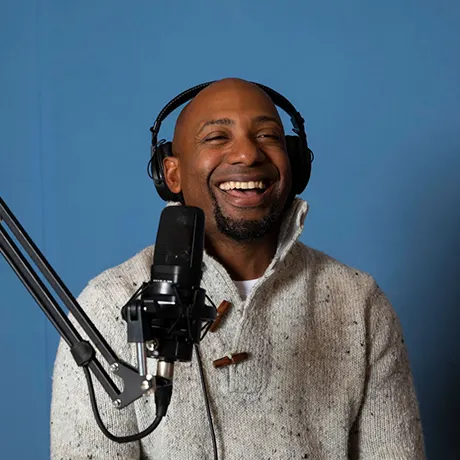
Julian Saavedra, MA
is a school administrator who has spent 15 years teaching in urban settings, focusing on social-emotional awareness, cultural and ethnic diversity, and experiential learning.
Latest episodes
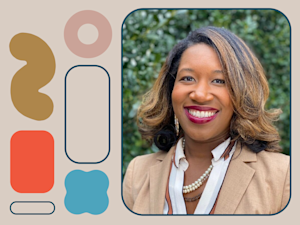
April 10, 2024
Myths and misinformation about ADHD and learning differences show up all the time on social media. Find out what’s fact and what’s fiction, and learn about the impact of these myths on kids of color.
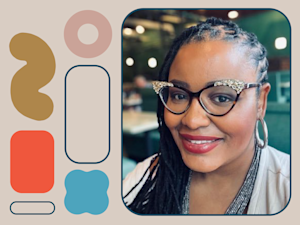
March 27, 2024
ADHD advocate René Brooks was diagnosed with ADHD twice as a child. But it wasn’t until she was diagnosed again as an adult that she finally got support. Listen to her story.
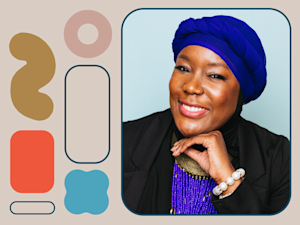
March 13, 2024
Learn about the steps to getting an IEP and starting your child’s special education program. Get tips from an expert.

February 14, 2024
Learn how four members of the Understood team are making an impact in the lives of people with learning and thinking differences.
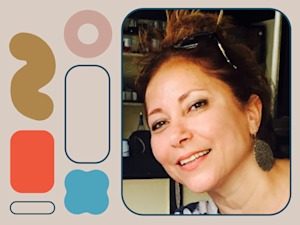
January 31, 2024
How can high-schoolers and their families prepare for life after high school? Get advice and tips from a college advisor.

January 17, 2024
Some kids don’t like to share information about their school day. Get tips on how to get them to open up and share. These tips and conversation starters can help your child to open up.
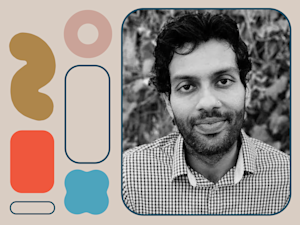
January 3, 2024
The school-to-prison pipeline has disrupted education for kids of color for a long time. Learn what the pipeline is and why it’s critical to end it.
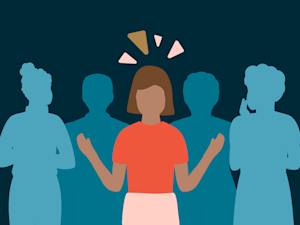
December 6, 2023
Telling your relatives about your child’s challenges can be difficult. Get tips on how to make the talk easier to manage.

November 8, 2023
For some students of color, feeling mistreated by teachers is a common experience — and it shouldn’t be. Learn how to help kids self-advocate.
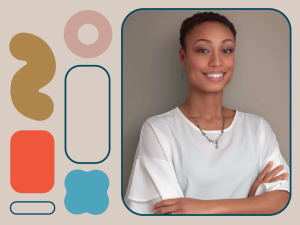
October 25, 2023
Dyslexia is a common learning difference that impacts many kids of color. Hear from an expert and learn ways to support kids in the classroom.